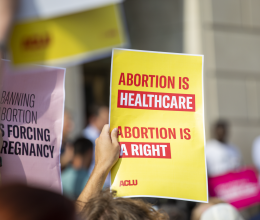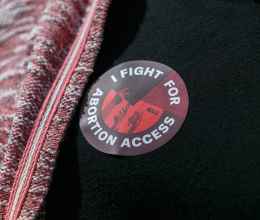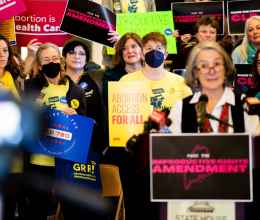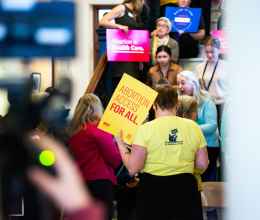Two weeks ago, I wrote about Senator Wendy Davis’ new memoir, Forgetting to Be Afraid, and the two abortions that she discussed in it. Shortly after Davis’s memoir was released, the New York Times published an op-ed piece entitled “This is What an Abortion Looks Like.” In it, Merritt Tierce commends Davis for being so open about her abortions and writes that she respect the level of courage it took for Davis to reveal this very personal piece of her history.
Tierce continues her piece by acknowledging that Davis’ story and background feel familiar to her, namely because she, like Davis, has had more than one abortion. But, unlike Davis, Tierce’s two abortions weren’t related to medical complications. Davis’ first abortion was to end a life-threatening ectopic pregnancy. She chose to end another pregnancy after the fetus was diagnosed with a brain abnormality. In contrast to Davis, Tierce ended her pregnancies because she wasn’t financially and emotionally ready to care for another child: “I had an abortion because we were poor and I was depressed and I didn’t know who the father was.” She ended a second pregnancy because the man she was seeing was emotionally abusive.
Although Tierce’s abortion experiences are more common, Davis’ medically necessary abortions represent a type of abortion that, for many, is the most acceptable. Tierce calls these kinds of abortion stories “politically safe” because they inspire sympathy and send the message that abortions are extremely rare. And because these stories inspire a particular kind of sympathy, they become the standard against which all abortion stories should be measured. An abortion that is the result of a severe medical complication or, perhaps, a traumatic experience becomes the only justifiable abortion.
Ultimately, Tierce suggests that we stop classifying abortions as "justified" or "unjustified." One way to do this is be open to hearing abortion stories, regardless of the reason behind the decision to abort. Being open to hearing all types of abortion stories demonstrates that we are truly supporting women and the choices they make about their bodies. Tierce ends her op-ed with a suggestion:
The best thing you can do if you support reproductive rights is to force people to realize that abortion is common, and the most common abortion is a five-to-15-minute procedure elected early in the first trimester by someone who doesn’t want to be pregnant or have a child. It’s our job to say it’s O.K. if that’s the end of the story. It’s O.K. if it’s boring or not traumatic or if you don’t even know what it was.









